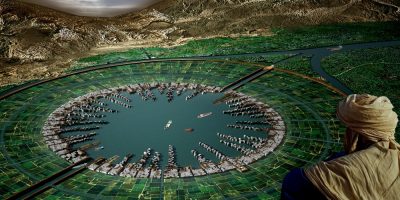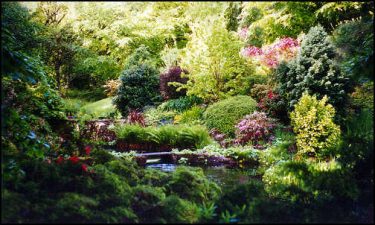
Date palms can be grown using drip irrigation by companies like Netafim, and using smarter agriculture tools like that proposed by flux (www.fluxiot.com)
Palmaculture is a new name for an old concept – one which helped green the Middle East with traditional palm gardens called bustans
For centuries now date palm groves have been present in the hot deserts of MENA stretching from Morocco in the west to Yemen in the south. Indeed these man-made ecosystems have been vital centres of agricultural productivity in otherwise hostile and arid environments.
It is believed that the first date palms were cultivated in southern Mesopotamia in the 5th millennium BC and oasis agriculture developed on a wider scale during the Bronze Age. Now, Islamic researcher Mark Bryant wants to re-introduce date palm gardens to the region – this time not just for agricultural purposes but in a bid to increase green and sustainable spaces.
“These gardens could provide a cool peaceful shaded space where visitors can enjoy the natural environment whose development is low impact and sustainable – a place to grow food, shade, peace of mind and perhaps even get a little closer to God,” explains Mark Bryant. His work around the concept of Palmaculture highlights the advantages of embracing palm gardens.
Date palms, which have fruit rich in sugar and vitamins, also provide material for construction, fuel, basket making, ropes and packaging. The shade that palms provide reduces evaporation and creates a cooler, damper ‘microclimate’ where more delicate crops can grow.
Bryant adds that the palm groves can serve as test sites for sustainable agriculture whilst promoting bio-diversity and conservation of the natural world. Palm gardens could also be utilised as sites for the recycling of “greywater” as part of a water management scheme. Therefore these palm gardens are not just for growing food but they become places of recreation, education and scientific research.
Bryant tells me that the Palmaculture concept was inspired by the work of Geoff Lawton, a Permaculturist (who works with his wife Nadia Lawton who I interviewed here), who has noted the important role played by palm groves. “I was able to talk to Nadia and Geoff briefly in Jordan, their reaction was positive and they felt the concept has potential,” says Bryant. “I feel my next step is to develop the proposal into something more presentable and then Inshallah get it translated into Arabic and produce a bi-lingual illustrated booklet.”
Watch this space, I guess.
: Background information via Tengberg, M., Beginnings and early history of date palm garden cultivation in the Middle East, Journal of Arid Environments (2012).
For more on sustainable agriculture in MENA see:
Islamic Gardens – They Could Build A Green Movement
Permaculture Is the Silver-Green Bullet (INTERVIEW)
Permaculture and Sustainability Project Takes Off In Jordan



